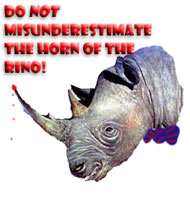March 23, 2005
Tummy Ache
Last night I'm whipping through Conde Nast Traveler again, and I come across an article titled: A Nonstop, Unapologetically High-Calorie Foodie's Tour de France. So, of course, being a foodie, I'm automatically obliged to read the damn thing. (Of course, it's not online yet, but you'll just have to take my word for it. You trust me, right? Ok. Good.)
The premise behind this article is that Traveler sent the author and a friend on a twenty-some-odd-day tour of France's finest restaurants at the same time the actual Tour was occurring last summer. "Nice work if you can get it," you're undoubtedly saying. I thought the same thing as I settled in to read. But I was very, very wrong. After I finished the article, I thought two weeks, being forced to eat slops in a Turkish prison would be a more pleasant and interesting experience.
If you're interested in how I came to this conclusion, read on after the jump.
To define my national culinary preferences, I truly believe the French win. Not by a mile, mind you, but they win nonetheless. I enjoy Italian. I love a plate full of sushi, and sashimi-grade tuna garnished with salmon roe will make me go positively orgasmic. Chinese and Thai are wonderful experiences for the tongue. As are all sorts of curries. In homage to my Polish/German roots, kielbasa with mashed potatoes and sauerkraut, to me, is a gustatory delight. Even American food has a place on my favorites list. I fry chicken on a regular basis because, truly, the Colonel has nothing on me. I adore a greasy diner burger. I am truly a person who enjoys the best the world has to offer in terms of food, but I still think the French win. To quote Anthony Bourdain from the introduction to A Cook's Tour:
I wanted magic. When is food magic? What are the common denominators? Certainly, when food is the result of a brilliant and obsessive personal vision, it can take on mystical, magical aspects. At their best, chefs like to consider themselves alchemists, and some of them, particularly the French, have a long and glorious tradition of turning lead into gold. For what is a humble shoulder or shank or strip of gut if not leaden and unlovely, and what is daube of beef Provencale or osso buco---when every bit of flavor and texture has been coaxed gently by skilled hands---but pure gold? And it's not just magic for the person eating. It can be magic for the chef as well, seeing that tough, veiny, uncooked hunk of meat and bone going into the oven, swimming in purplish and not very distinguished red table wine, then seeing it, smelling it, tasting it only a few hours later, the sauce reduced, a hearty, thick, mellowed and wonderful witches' brew---transformed.It's an understanding of this process that raised the French (and Italians) to the forefront of classical cuisine. It's why we love them---even when we hate them. Few sane persons enjoy French pop music---or even the French much---but they know what to do with every scrap of hoof, snout, entrail, and skin, every bit of vegetable trimming, fish head and bone. Because they grew up with that all-important dictum. Use everything! (And use it well.)
Why is that? Why them and not us?
The answer is, in many ways, to be found elsewhere in the world---in Vietnam, Portugal, Mexico, Morocco---because they had to. It was not---in eighteenth and nineteenth century France---as it is not today in much of the rest of the world, an option whether to use the nasty bits. You had to.
They damn well better have figured out something to do with calf's face, pig's feet, snails, old bread, and all those cheap cuts and trimmings or they'd go broke, starve, never be able to afford the really good stuff for special occasions. Sauces, marinades, stewing, charcuterie, the invention of the quenelle, the sausage, the cured ham, salted fish, confit---these were strategies, the results of necessity and countless experimentation. Coq au Vin? Tough, oversized bird, marinated in red wine and braised long enough enough to be able to be chewed. Pot-au-feu? Broiled tongues, tails, bones, and cheap root vegetables. Pate? Scraps and trimmings and fat, ground up and seasoned and decorated until somebody was interested in putting it in their mouth. Confit de canard? I got no refrigerator and I got no freezer and all these damn duck legs are going bad! Those shrewd and wily French toiled mightily over the years, figuring out ways to make just about everything that grazed, creeped, swam, crawled, or hopped, and every growing thing that poked through soil, rotted on the vine, or hid under the dung into something edible, enjoyable---even magical.
When this food is combined with their service, which anyone who's ever waited tables can tell you is no easy feat to pull off, and their wine, you're not eating a meal, you're experiencing all of the beauty that life has to offer. And it's all on a plate, right in front of you. The French win.
So, a twenty-day tour throughout France, snarfing the best the country has to offer sounds like a great experience, no?
No.
This was, unfortunately for us, the author's, Adam Sachs, dream after reading Waverley Root's book, The Food of France.
{...}Published in 1958, The Food of France isn't a guide in the normal sense. Its maps lack topographical detail. Instead they are annotated with the names of the edible specialities of the area. For instance, the suburbs of Grenoble are labeled ST. MARCELLIN CHEESE, WALNUTS, AND GRATIN DAUPHINOIS, while the nearby city of Vienne is marked FOIE GRAS IN PASTRY and TROUT BRAISED IN PORT. As if these were physical facts of the landscape. As if you could jump in your car and head north on the autoroute from Grenoble, watching a giant gratin recede in the rear view mirror as the rich goose liver pastry and trout of Vienne come into view on the fragrant horizon.Fifty years on, Root's book is still as clear as consomme and as complex and satisfying as quality cassoulet. The first time I read it, I went through it like a novel. Good reading though it is, I've always wanted to do more with it---specifically to eat my way through its index. So when the editors of Conde Nast Traveler called me to discuss a culinary odyssey in the spirit of the Tour de France, I immediately envisioned Root's division of French cooking into three territories, each named for its signature cooking fat: the Domain of Lard, the Domain of Oil, and the Domain of Butter.
So, with Root's findings firmly in mind and guiding the process, the author and his chef buddy hit the highway in France, starting in Lameloise. Then they begin working their way through the Alps, near to Grenoble, before heading south, southwest, hitting the highlights of Nimes, St. Remy, Tolouse, then abruply heading northwest toward Limoges, and then, somehow, working their way back to Paris. And these, of course, aren't the only places they stopped along the way. Over the same time period of the Tour de France last summer. They even brought bikes along to give their trip an authentic feel.
I wish I didn't have to type out every little bit I'd like to quote, because I'm sure you're wondering what I'm going on about. I'm not going to put you out of your misery, but neither am I going to make this post any longer than it needs to be, so, to try and draw this thing to something near closure, I will say that I cannot believe anyone in their right mind would take this article and use it as vacation planning material. This idea is completely egregious and so not what French cooking is about. It's a typically American idea to race through an entire country's edible delights in twenty some odd days. While I hate to side with the French on anything, but if they decided to bitchslap this guy, I'd be right behind them, handing them the tools they needed for the job.
I mean, honestly, how much foie gras can a reasonable person be expected to consume over a two-week period? These guys were not reasonable. They just wanted to shove everything they could lay their grubby paws on down their gullets and keep on keepin' on. In this race to sample as much as possible, they missed, I believe the real reason people want to go to Provence and sit in a garden to eat a fine meal: that they can chill out and savor the taste of the food. LikeI said above, I believe the French have the food down pat, and it's, in my humble opinion, not something to be gobbled greedily. It's rich stuff. Foie gras, while wonderful, is not something you want to snarf every day of the week. Truffles, while lovely, are also rich and should be consumed every now and again, and not every day, because then you'd lose your appreciation for their rarity. By the end of the article, I hadn't eaten a damn thing, but I was full. Stuffed to the gills full. Well, actually, no, I wasn't. I'm fibbing. I had a full-on craving for foie gras, but it's not like I had any laying around the house, cluttering up the fridge. I had to settle for pineapple upside-down cake, which was more satisfying than, I have to think, their adventures had to have been.
While Sachs does hit the highlights of culinary exhaustion---even he gets weary of foie gras---he and his pal refuse to "bonk," which reportedly is cyclist lingo for running out of energy. Toward the end of the article, despite my foie gras craving, I just felt like shouting, "Surrender! You can't take it anymore! Admit it! A bloody bike race is one thing, but this isn't a bike race! Even the French don't eat like you want to believe they do!" But, no, it was off to sample the delights of yet another three-Michelin-starred restaurant. How bloody arrogant can you be? How can you honestly give the chef the credit they deserve for their creations when all you're doing is eating at one Michelin starred restaurant after another? Comparing apples to apples is one thing, but even though I've never been to France, the stories I love to hear from people who have been are when they found a small, deserted, gem of a brasserie after taking a wrong turn. These are the stories you really want to hear about when someone's talking about France. What did the author miss in his race to sample the best of the best because he was impelled to follow the course some other author said he should follow in a book published almost fifty years ago?
Bleh. I have to think a Turkish prison would have provided more culinary excitement. At least at the prison, you would never know what was going to be served up. Would it be moderately tasty? Would it even be edible? Could something be good in a Turkish prison? These guys, however, wanted only the best.
This whole trip went against the grain of what makes French cooking so sublime: making the most out of what you have before you. Funny that the author completely missed this.
Posted by Kathy at March 23, 2005 01:58 PMI'm presuming you meant 'gem of a brasserie' instead of 'brassiere' (which gave me an entirely *different* mental picture...)
Posted by: LDH at March 23, 2005 03:56 PMThink that's bad? Adam and friend literally stuff themselves with as much foie gras in one evening as possible here: http://www.brettmartin.org/articles/foie.html
Posted by: eater at October 28, 2005 04:40 PM


